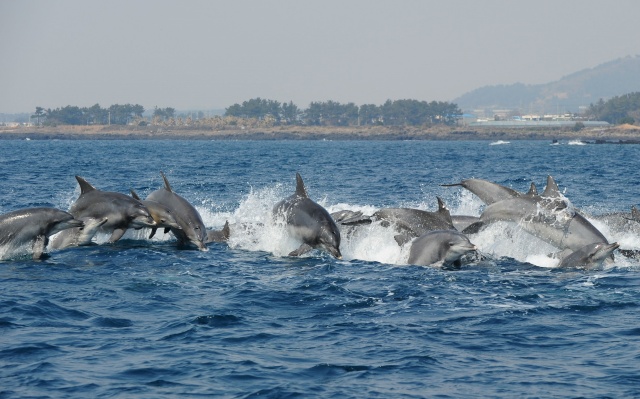| |
 |
|
| |
Jeju Special Self-Governing Province is set to grant corporate status to the Indo-Pacific humpback dolphin, an internationally protected endangered species, providing a legal basis for its protection rights.
On the 13th of last month, Jeju Province held a joint press conference announcing the introduction of the Eco Legal Person system, a first in Korea. This initiative aims to safeguard the environmental and ecological value of Jeju, the island of world peace, and to establish a new standard for South Korea’s ecological environmental policy.
An Eco Legal Person is a system that grants corporate status to non-human entities with significant ecological value, such as natural environments or animals. Internationally, there are precedents like the Whanganui River in New Zealand and certain lakes in Spain (formed where the sea and rivers meet), where natural entities have been granted legal status.
Jeju Province has been operating an Eco Legal Person System Working Group since March this year, comprising academics, legal professionals, and experts, and chaired by Professor Jae Chun Choe of Ewha Womans University. After four meetings, they developed two proposals for amending the Jeju Special Law: granting corporate status to the Jeju Indo-Pacific humpback dolphin and establishing a special case for creating an Eco Legal Person.
The Province plans to refine the amendment of the Jeju Special Law, which includes the special case for the institutionalization of the Eco Legal Person system, through public consensus and dialogue. The proposal will be submitted as a bipartisan first bill in the 22nd regular session of the National Assembly. Additionally, Jeju aims to designate the Jeju Indo-Pacific humpback dolphin as the first Eco Legal Person by 2025.
It is known that a single whale absorbs an average of 33 tons of carbon dioxide over its lifetime, so the introduction of the Eco Legal Person system to protect whales is expected to significantly contribute to combating the climate crisis caused by global warming.
Governor Oh Young-hun emphasized, “The introduction of the Eco Legal Person system is not just a legal and systemic change, but an innovation aimed at solving the common challenge of climate crisis, shifting from a human-centric approach to a civilization where humans and nature coexist.”
Chairman Jae Chun Choe of the Eco Legal Person System Working Group stated, “This will fundamentally change our perception and attitude towards nature,” and expressed hope that “the introduction of the Eco Legal Person system in Jeju will lead South Korea to leap forward as an environmentally advanced nation.”
Meanwhile, the Jeju Indo-Pacific humpback dolphin, uniquely inhabiting the waters off Jeju, is considered a top predator in the marine ecosystem. Their status and population serve as indicators of coastal health. Forming tight defensive formations to protect against other predators and safeguard haenyeo (female divers), their numbers have recently declined to around 120 due to coastal pollution and marine debris. |




















